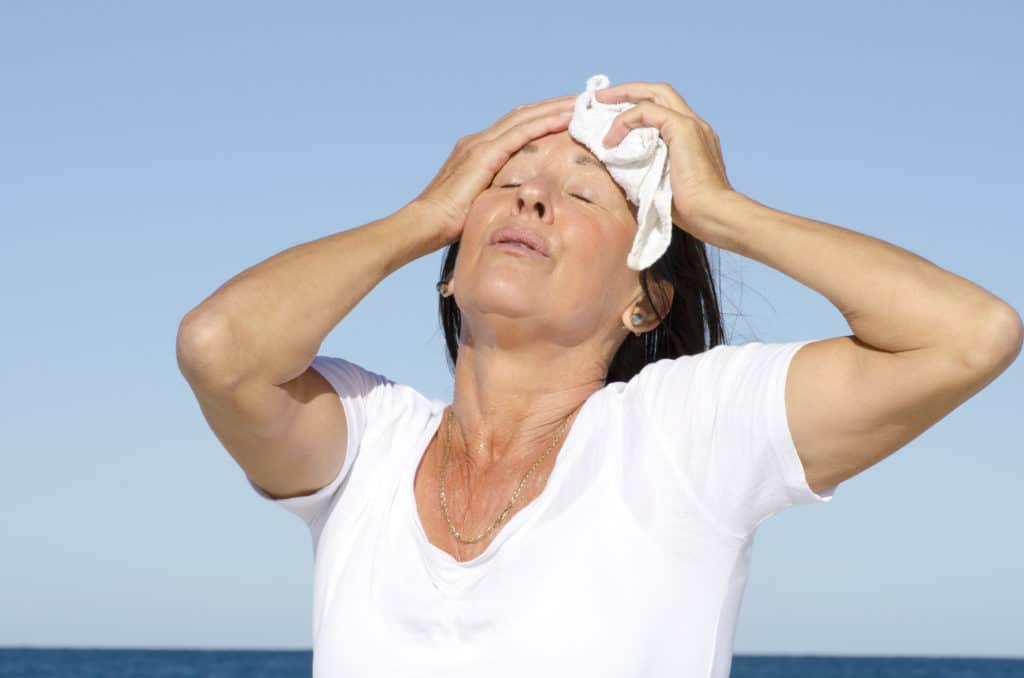Before it happens to you, you tend not to think too much about what happens during menopause. Then you can’t get away from it!
What Happens During Menopause?
After years of having periods you enter the perimenopause – the – 10 year transition period before menopause. Menopause is the complete end of your periods. Perimenopause usually starts somewhere between the mid-40s and early 50s.
While you’re having regular periods a cycle of rising and falling levels of oestrogen and progesterone play out each month.
The levels of oestrogen and progesterone start on a downward trend during the perimenopause years, often leading to menopausal symptoms.
It’s possible to continue having regular periods at the beginning of the perimenopause, but at the same time be experiencing other perimenopausal symptoms. It’s not always obvious what’s going on early on because some of these symptoms can be vague – you don’t quite feel yourself, you could feel fatigued for no obvious reason, have lost your sex drive, or have low mood and anxiety for the first time in your life.
Once your periods start changing or the hot sweats kick in, it’s pretty obvious what’s going on.
When you’ve not had a period for 12 months you’ve gone through the perimenopause and are now officially in the menopause. Unfortunately you can still be suffering a lot of symptoms when you reach this stage.
The menopause doesn’t go away. Symptoms can ease, but underneath your body continues to suffer because oestrogen and progesterone also play important roles in general health to. Without them bone mass declines, and your cardiovascular system degenerates faster.
Common Symptoms
So much can be going on, and your experience will be different to another woman’s.
What happens during menopause as regards common symptoms:
- Period changes – some women just suddenly stop. More commonly there’s a change in cycle length – often periods get closer together, and you might miss some too. They can become lighter or heavier.
- Hot flushes – you feel a heat coming from within, like you’re on fire all of a sudden. Your face and neck might go red and you may sweat too.
- Night sweats – some women might just get a bit hot a night, others have horrible drenching sweats where the bed clothes end up soaked.
- Sleep problems and insomnia – not necessarily related to night sweats.
- Fatigue.
- Weight gain, especially around your middle.
- Low or no sex drive.
- Mood swings, feeling overly emotional, lost confidence
- Difficulty concentrating or remembering things – ‘brain fog’.
- Vaginal dryness which makes you feel itchy and sore, and can be really painful when having sex
- Repeated urine infections
- Urinary incontinence and leaking
- Your skin is wrinkling even quicker
- Increasing aches and pains
Some women can be ok one week and literally hit a brick wall the following week, it can happen that fast.
Interested in HRT but don’t know where to start? Find out all you need to know in this class.
HRT – What To Ask Your GP
Have a great week!
Dr Julie
